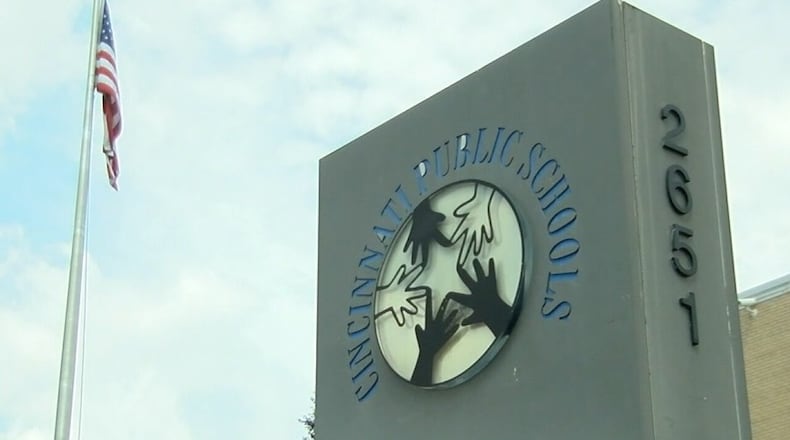A later release, which published data from the 2021-2022 school year, said Black students were also much more likely to receive “exclusionary discipline,” which the ACLU alleged “unnecessarily removes students from learning.”
In total, more than 10,000 CPS students annually face exclusionary discipline, which includes suspensions, expulsions and alternative placements, the ACLU said.
The ACLU’s data showed that in an average school year, Black students — who make up 63% of the district’s nearly 36,000 students — made up 93% of out-of school suspensions; 89% of police referrals; 85% of in-school suspensions; and 78% of expulsions.
Janine De Iorio, a spokesperson for CPS, said the district is aware of existing disparities — both locally and nationwide — and is continually working to mend them.
“While our district has improved its Student Code of Conduct, implemented restorative justice programs and increased mental health support staff, we recognize more work needs to be done to further reduce these disparities in our schools,” De Iorio said in a statement.
The district’s new superintendent Iranetta Wright said student discipline has been a key focus during the first few months of her tenure.
“We need to place a stronger emphasis on implementing and monitoring our restorative justice program at every school, build more social emotional learning lessons into the curriculum, better leverage our mental health professionals and social workers at every school, and participate in joint training with SROs to ensure they better understand their roles in our schools,” Wright said.
CPS also said that the police department’s SROs are “...not responsible for school discipline, including emergency removals, suspensions and/or expulsions.”
However, the ACLU said that more than 400 students annually will have a negative interaction with the justice system as a result of discipline within CPS. On average, a year will have 81 arrests, 135 warrants issued, and 191 summons or referrals of CPS students. The ACLU alleges that most of these instances could “...have been handled by school staff instead of police.”
As a result, the ACLU and YAC have asked for CPS to terminate its contract with the Cincinnati Police Department, which would remove school resource officers from the district’s classrooms.
Elena Thompson, a legal fellow at the ACLU of Ohio, said that a “...vast majority of school incidents can and should be handled by teachers or school administrators and should not merit police intervention.”
De Iorio said there are “additional environmental aspects” that can have an impact on
For CPS, the district is wary of oversimplifying the causes of this disciplinary disparity.
“In addition to school discipline, there are additional environmental aspects that impact a child’s life that can lead to devastating consequences,” De Iorio said. “CPS believes labeling School Resource Officers (SROs) as the root cause of a “School-to-Prison” pipeline does not address the multiple needs and challenges that occur outside of school.”
Following the findings, a recent ACLU poll found that many district stakeholders are unhappy with the current contract between CPS and CPD, as 53% of polled parents and 65% of polled recent graduates expressed disapproval.
Further research from the ACLU showed that, in the 2021-2022 school year, Black students were 15x more likely to be expelled with instruction, 8x more likely to be expelled without instruction, 6x more likely to receive out-of-school suspension.
“The goal of our campaign is to remove police from schools and replace the punitive disciplinary practices that so often target Black and brown children with restorative and transformative justice,” said Bella Gordo in a release, a CPS student and the current president of YAC.
Gordo asked for parents and residents to be active at school board meetings in an effort to terminate the district’s contract with CPD and achieve “...police removal, restorative justice in schools, and a supportive, uplifting environment for all students.”
About the Author

